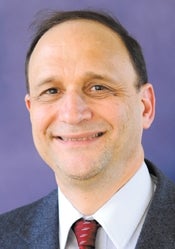Expert Predictions: Health Care | How will cost-control efforts work in Massachusetts and nationally?
Health care costs rise far faster each year than the general rate of inflation, and no one expects that to change any time soon, but Paul Swoboda, a researcher with the University of Massachusetts Medical School’s Commonwealth Medicine division, said some positive steps toward addressing the issue may come in the next year.
Swoboda said if the state moves forward with an effort to get rid of the fee-for-service model of paying for health care services it could have a major impact on how fast costs rise. On the table is a “global payment system” that would pay providers based mostly on the number of patients they care for, leaving it up to them how to most effectively manage their health. In theory, this would make lower-cost ways of keeping people healthy more attractive than big-ticket interventions to fix problems once they occur.
But Swoboda said making the shift will require a great deal of work, and time.
“I don’t think we’re going to see very much in kind of concrete immediate changes in terms of large-scale things,” he said.
More immediately, Swoboda said hospitals and doctors will continue implementing electronic systems to track patient information. Federal and state initiatives are putting money toward those efforts.
Swoboda said they won’t see an immediate financial return from the records systems. Instead, the new systems will help them improve the quality of care they can provide, and that will eventually translate into savings.
As chair of the state legislature’s Health Care Financing Committee, Sen. Richard Moore, of Uxbridge, is hopeful that the state will move toward curbing health care costs in the coming year.
Moore said one thing that may help out is language in a bill passed last year that requires the state to hold public hearings for insurance companies that want to increase their premiums and providers that want rate increases. The law gives the attorney general the power to represent consumers at the hearings.
Moore said the AG’s office is already looking into some issues around health care costs, particularly the relationships between insurers and providers. In some cases, he said, rates may be a result of negotiations between the two parties without real justification.
“That doesn’t necessarily help the customer,” he said.
Moore said if the hearings don’t take place by the end of 2009, they should start in early 2010.
Another area where the state may be able to address cost issues is the medical malpractice system. He said he’d like to move forward with a proposal to set up a mediation system so that patients can address medical errors without going to court and practitioners can apologize for mistakes without incriminating themselves.
When it comes to the sweeping change the state hopes to make in payment systems, Moore said he hopes some progress will take place in the first half of next year. After that, he said, budget negotiations and the election season will probably make it hard to move forward.











0 Comments